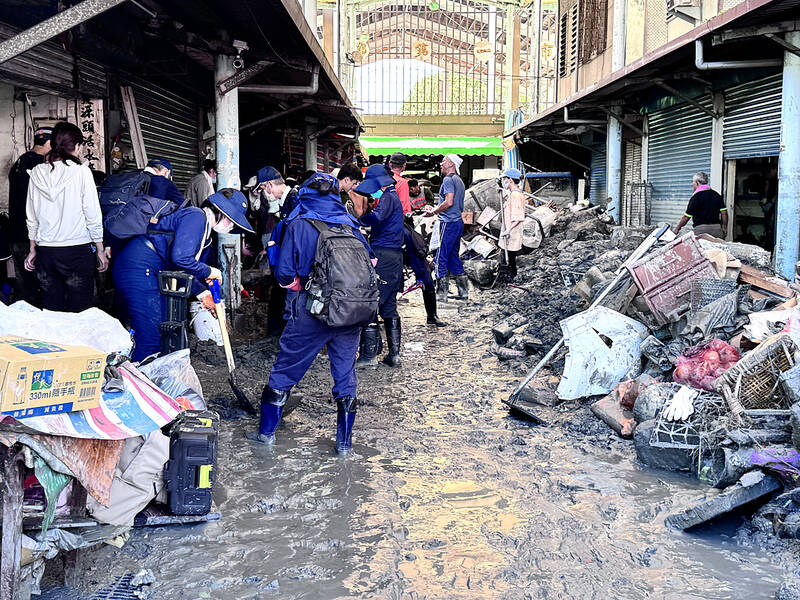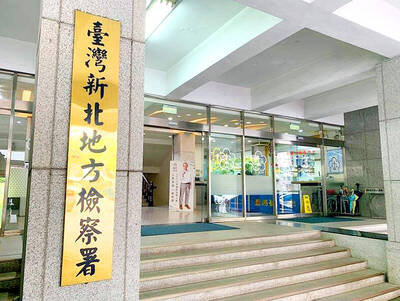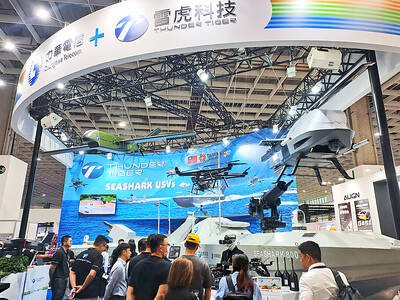Volunteers assisting in disaster recovery in Hualien County’s Guangfu Township (光復) should put on protective gear, and pay attention to food safety and environmental disinfection to prevent infectious diseases, the Centers for Disease Control (CDC) said yesterday.
Heavy rainfall brought by Super Typhoon Ragasa caused a barrier lake in the Mataian River (馬太鞍溪) to burst on Tuesday, bringing floodwaters sweeping through Guangfu and leaving the town covered in mud and debris.
Several civic groups and people from across the nation have brought shovels and equipment to the town to help with cleanup this weekend.

Photo courtesy of the Buddhist Compassion Relief Tzu Chi Foundation via CNA
CDC Director-General Philip Lo (羅一鈞) yesterday thanked the volunteers, and said that the agency wanted to remind them to first head to the task assignment station in front of the Guangfu train station.
After arriving at the designated disaster recovery task area, volunteers should comply with the local task coordination mechanism for recovery work to proceed smoothly, he said, adding that they should also mind their own safety and take precautions against infectious diseases.
“There is still a lot of mud and floodwater in the area, so if you only bring a shovel to clean up, but don’t have any protective gear, you could easily be infected by bacteria in the flood water,” Lo said.
The CDC recommends three protective items — a facial mask, waterproof gloves and tall waterproof rain boots — to prevent people from inhaling pathogenic bacteria and protect possible open wounds on their hands or feet from direct contact with contaminated floodwater, he said.
“People should also pay attention to food hygiene to prevent gastroenteritis,” he added.
If water storage tanks have been contaminated with floodwater, people should thoroughly wash and disinfect them before storing water again, the CDC said.
Food and water must be thoroughly cooked before consumption, and food soaked in floodwater should not be consumed, it added.
Medical stations are also offering free bleach to people who need to disinfect their living environment, while the volunteer task assignment station is offering free masks, Lo said.
People should use diluted bleach to clean both indoor and outdoor areas, and put utensils in boiling water or rinse them in diluted bleach water for 30 minutes before washing them thoroughly with clean water, he said.
People should frequently wash their hands thoroughly or use a 75 percent alcohol-based hand sanitizer if they cannot access clean water, he added.
The local health department would also coordinate with volunteers to give out bleach to all households in the coming days, Lo added.
The CDC said there are more than 7,000 bottles of disinfectant in Hualien and Taitung counties ready to be distributed, and there are still more than 163,000 bottles of bleach and phenol disinfectant stored nationwide.
The shelters have not shown any signs of infection outbreak, the CDC said.
The CDC said that it would continue to work with the local health department to monitor the spread of disease in the area.
Hospitals are encouraged to ask people if they have had direct contact with floodwater or mud, and report suspected cases of infectious diseases, it said.

SAFE SUPPLY: Drone shipments from Taiwan help Polish companies mitigate disruption from China, which scaled down its sales to European countries Poland has become the biggest buyer of drones from Taiwan as the eastern European country, on Russia’s doorstep, bolsters its defense capabilities and seeks to reduce reliance on Chinese parts. Poland is now absorbing almost 60 percent of Taiwan’s drone exports, which expanded this year to about US$32 million through last month, from almost nothing in the previous years. The next-largest importer of Taiwan’s drones is the US, to which Taiwan sold about US$7 million worth in the same period. Taiwanese drone maker Ahamani said Polish demand was so great it was planning to open a factory there, and that other foreign

The New Taipei District Prosecutors' Office yesterday indicted Luxshare Precision Industry Co chairwoman and CEO Grace Wang (王來春) and three others for contravening the Act Governing Relations Between the People of the Taiwan Area and the Mainland Area (臺灣地區與大陸地區人民關係條例). The billionaire businesswoman and cofounder of the China-based electronics manufacturer used a Hong Kong subsidiary in 2018 to acquire a division of Liteon Technology Co, a Taiwanese company, prosecutors said. Wang then sought to register it as an overseas Chinese-invested company, but was rejected by the Ministry of Economic Affairs' Investment Commission because its funding involved Chinese capital, prosecutors said. After the rejection, Wang

The Tainan Mass Rapid Transit (MRT) is to be a monorail, the first in Taiwan, the Tainan Bureau of Transportation said on Thursday last week. The Tainan City Government has submitted draft regulations governing the technical specifications of monorail systems to the Ministry of Transportation and Communications to handle the unprecedented project, the bureau said. Monorail designs are compact and quiet, fast to build, and have a small environmental footprint compared with the steel wheel and bogie design commonly used in Taiwanese cities, it said. Nations across the world operate monorail metro systems, and modern designs often feature separate walkways for maintenance crews

Taiwan is emerging as a regional hub for next-generation uncrewed systems, a security expert said yesterday, after a drone made by Taiwan’s Thunder Tiger Group was included in the US Department of Defense’s Blue UAS (uncrewed aerial systems) Cleared List. “Thunder Tiger’s Blue UAS certification is a milestone that signals Taiwan’s defense industry can now produce unmanned systems that meet the US Department of Defense’s strictest cybersecurity, supply chain and operational standards,” said Sunny Cheung (張崑陽), a fellow for China Studies at the Jamestown Foundation. On Saturday, Thunder Tiger’s Overkill, a first-person-view (FPV) suicide drone, became the first drone from